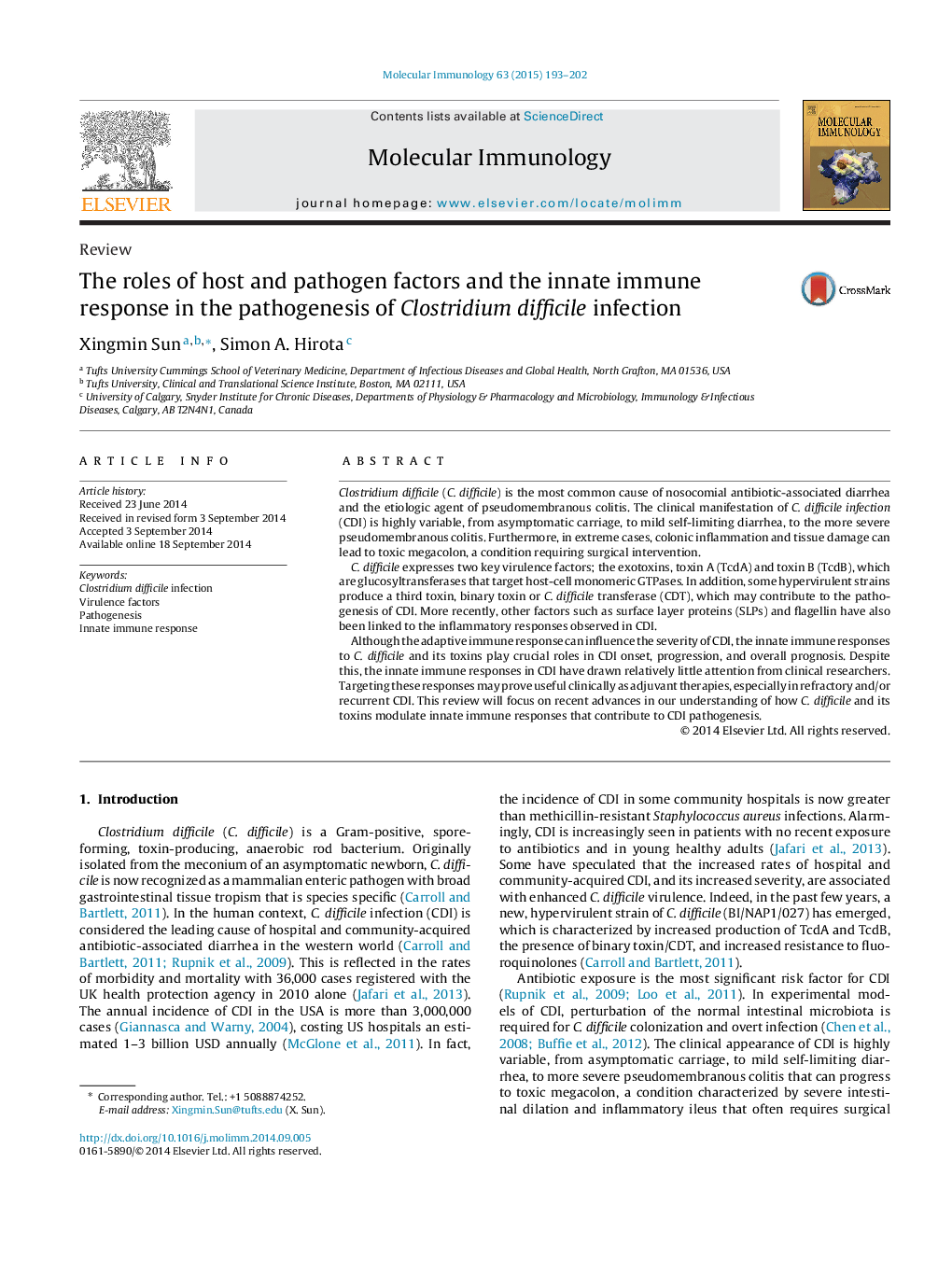| کد مقاله | کد نشریه | سال انتشار | مقاله انگلیسی | نسخه تمام متن |
|---|---|---|---|---|
| 2830702 | 1163750 | 2015 | 10 صفحه PDF | دانلود رایگان |

• This review focuses on recent advances in our understanding of how C. difficile and its toxins modulate innate immune responses that contribute to CDI pathogenesis.
• C. difficile virulence factors are discussed in relation to their role in activating innate immune responses.
• The role of the innate immune response in CDI pathogenesis is examined by discussing the data generated from toxin-exposure and infection-based experimental models.
Clostridium difficile (C. difficile) is the most common cause of nosocomial antibiotic-associated diarrhea and the etiologic agent of pseudomembranous colitis. The clinical manifestation of C. difficile infection (CDI) is highly variable, from asymptomatic carriage, to mild self-limiting diarrhea, to the more severe pseudomembranous colitis. Furthermore, in extreme cases, colonic inflammation and tissue damage can lead to toxic megacolon, a condition requiring surgical intervention.C. difficile expresses two key virulence factors; the exotoxins, toxin A (TcdA) and toxin B (TcdB), which are glucosyltransferases that target host-cell monomeric GTPases. In addition, some hypervirulent strains produce a third toxin, binary toxin or C. difficile transferase (CDT), which may contribute to the pathogenesis of CDI. More recently, other factors such as surface layer proteins (SLPs) and flagellin have also been linked to the inflammatory responses observed in CDI.Although the adaptive immune response can influence the severity of CDI, the innate immune responses to C. difficile and its toxins play crucial roles in CDI onset, progression, and overall prognosis. Despite this, the innate immune responses in CDI have drawn relatively little attention from clinical researchers. Targeting these responses may prove useful clinically as adjuvant therapies, especially in refractory and/or recurrent CDI. This review will focus on recent advances in our understanding of how C. difficile and its toxins modulate innate immune responses that contribute to CDI pathogenesis.
Journal: Molecular Immunology - Volume 63, Issue 2, February 2015, Pages 193–202